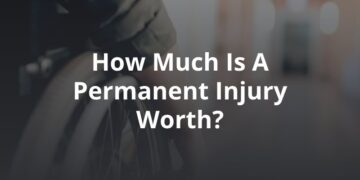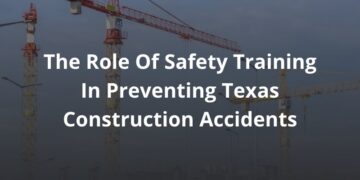You probably feel nervous if you have been called to give a deposition. You may not know what to expect. After all, many people never give a deposition. And if they do, it might only happen once in a lifetime.
If you are wondering how to give a great deposition, you should read on for valuable deposition advice. We can teach you how to prep for a deposition.
What Is A Deposition?
A deposition is witness testimony given under oath and outside of court. Depositions are part of the discovery process. That’s when lawyers gather evidence and share information in preparation for a trial.
One of the most common uses of a deposition is for impeachment, which is when a lawyer attacks a witness’s credibility This can be because they are lying or their memory has faded.
Under the Texas Rules of Evidence, if a witness testifies in trial inconsistently than prior deposition testimony, the deposition testimony can be used to impeach the witness.
Why Are Depositions Important?
Depositions are incredibly important in personal injury cases for the following reasons:
- Depositions uncover information that lawyers can further investigate before trial
- Depositions allow lawyers to see how well a witness will testify
- Depositions help lawyers prepare for trial and witness examinations
- Depositions force witnesses to commit to testimony under oath so that they cannot change their story later
- Depositions capture the testimony of witnesses who may die or otherwise become unavailable for trial
Since depositions play an integral role in personal injury cases, it is important to make sure you are fully prepared before it begins.
Tips To Prepare for Depositions
Your personal injury lawyer will generally help you prepare for your deposition. You should always take your attorney’s advice. However, a few tips can make your deposition go smoothly.
Review Your Testimony Beforehand
Significant time may pass between the accident and your deposition. It’s normal to forget small details during that time. You should review your testimony in the weeks leading up to the deposition.
Reviewing your testimony may include:
- Looking at physical evidence like photos or video footage
- Reviewing medical records
- Reading through any prior statements or police reports
- Listening to recorded statements made to the insurance company
The most important thing is to make sure that you refresh your recollection with whatever information you have available so that you can answer questions clearly, honestly, and accurately.
Listen Carefully and Clarify Questions
Sometimes lawyers ask tricky questions. It’s normal for opposing counsel to try and confuse you. This gives them a chance to poke holes in your story or make you look like an unreliable witness.
Listen to each question carefully and ensure you fully understand the question before answering. If you don’t understand the question, you should ask the lawyer to clarify or rephrase it. This is commonly an issue with compound questions. For example, “Were you speeding and texting when the accident happened?”
Only Answer the Question Asked
You may feel like you have more to say during a deposition. Perhaps the lawyer’s questions don’t paint a whole picture, or you think something significant was left out.
It is important that you only answer the questions asked. You should not offer any more information than is necessary. That’s because the more you offer, the more information you give to the opposing counsel. Oversharing also creates more opportunities for you to have an inconsistent statement later in the trial.
Tell the Truth
Your deposition is given under oath, and you must tell the truth. If you don’t tell the truth, you could be charged with perjury. In Texas, perjury can be punished with jail time, and the conviction goes on your criminal record. No matter how difficult, you must be entirely honest in your deposition.
Remain Calm
The most important tip is to remain calm during the deposition. Lawyers are trained to pick up on anxious witnesses. Many will try to exploit your anxiety and make you upset, angry, or uncomfortable. Also, reliving a traumatic accident’s details can bring up strong emotions.
However, being too emotional can backfire and make you appear unreliable. Try to remain calm and remember their job is to make you look bad. Your job is to tell the truth.
A Personal Injury Lawyer Can Help You Through Your Deposition
If you hire an experienced personal injury attorney, they’ll be able to walk you through the deposition process such that your rights and interests are protected. The statements you make during your deposition could heavily influence the outcome of your case, so it’s best to get it right.
Contact Our Personal Injury Law Firm in Austin, TX
If you’ve been injured in an accident in Austin and need legal help, contact our Austin personal injury lawyers at FVF Law to schedule a free consultation with our team.
FVF Law
3101 Bee Caves Rd #301, Austin, TX 78746, United States
(512) 982-9328









